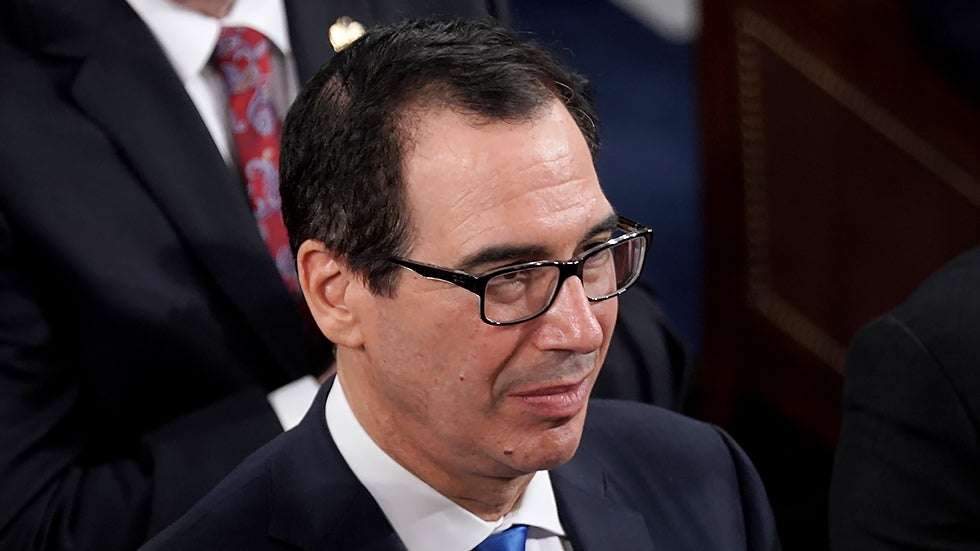Small businesses still struggling for loans even as $100B is approved

The Trump administration has approved roughly $100 billion of the $350 billion allocated for emergency loans to small businesses devastated by the coronavirus outbreak, Treasury Secretary Steven Mnuchin told lawmakers on Wednesday.
But the figure has done little to ease the rising fears of smaller businesses still struggling to access the funds - and growing ever-more concerned that the program is tilted in favor of larger enterprises with existing relationships with banks.
The anecdotes of anxiety and frustration are filtering in from around the country, where small business owners - many of them women and minorities - say they're scrambling to access the emergency loans provided under the Paycheck Protection Program (PPP), a new initiative created as part of Congress's recent $2.2 trillion coronavirus relief effort. Instead, they say they've been met with delays, confusion and uncertainty that the funds will ever arrive.
A business adviser in the Greater Philadelphia area went to a community bank seeking $1 million in loans - ranging from $40,000 to $300,000 - for seven clients, the adviser said, and hasn't heard a word since.
"The bank, which had initially said that they WELCOMED the loan applications, has yet to even acknowledge receipt," the adviser said in an email.
Another small business agent, representing a research project management firm in Plano, Texas, encountered similar barriers and is now left wondering if larger businesses aren't being prioritized. Under the program, loans are available to businesses with 500 employees or fewer.
"I only needed $100,000, but was told by my bank that I would be considered later," the agent said. "I only have 10 employees so maybe that is not enough considering the need of others."
The concerns arrive as Congress weighs another infusion of funds for the PPP, which is designed to keep businesses afloat and workers employed through the coronavirus crisis by providing easy-access loans that won't need to be repaid if businesses maintain their payrolls.
Late last month, Congress allocated roughly $350 billion to the nascent relief program; Mnuchin, on a conference call with Democrats Wednesday afternoon, said the administration has already approved $98 billion through more than 3,600 lenders.
The figure, up from $70 billion just a day earlier, both reflects the popularity of the PPP and highlights the pressure facing Congress to replenish its coffers to ensure that all eligible businesses can avail the funds.
The concern from small businesses is simple: they fear the money will run out before they can access it.
Mnuchin is pitching an additional $250 billion for PPP loans, and Senate Majority Leader Mitch McConnell (R-Ky.) is hoping to move the measure through the upper chamber by unanimous consent Thursday morning.
Democratic leaders, however, are demanding certain conditions of the new funding, including assurances that businesses without existing relationships with lenders - particularly those owned by women, minorities and veterans - aren't cut out of the program. Democrats also want a stipulation that half of the $250 billion goes through community banks, credit unions and other small-lending institutions.
"A lot of money [is] first-come, first-serve, and many unbanked people who are underbanked or unserved ... don't have banking relationships, sophisticated in a way that others do," House Speaker Nancy Pelosi (D-Calif.) said Wednesday in an interview with NPR. "So we said for the next $250 [billion], we really need to have a percentage of that - $60 billion - that would go to something called the community development of financial institutions."
Democratic leaders had hoped Republicans would accept those provisions, allowing the package to move swiftly through both chambers this week without having to call members back to Washington amid the coronavirus scare. But Republicans in the Senate and the White House remain cold to the changes, and Pelosi is warning that the GOP bill, as written, "will not get unanimous support in the House."
"It just won't," Pelosi told NPR.
The standoff has raised questions about how quickly Congress can supplement the loan program to ensure that all eligible businesses can access it - and whether they can do so before the current funds run dry. Both the House and Senate are not expected to reconvene until April 20, at the earliest.
Upping the pressure on Republicans, the Small Business Roundtable (SBR) is taking its members' concerns to Capitol Hill, pressing congressional leaders in both parties to ensure that the most vulnerable small businesses - borrowers and lenders alike - are able to use the program before the funding is exhausted.
In a letter sent Wednesday to McConnell and Pelosi, the groups said a lack of guidance for lenders has caused "confusion, under-preparedness and challenges for implementation," hitting women- and minority-owned borrowers particularly hard.
"We are disappointed to hear from many of our members that they have been essentially shut out of the program due to the various challenges from both the implementation and the banking side," reads the SBR letter, which was also endorsed by the the National Association of Women Business Owners, the Hispanic Chamber of Commerce and the Black Chambers.
The Senate vote on the additional $250 billion in PPP funds is scheduled for Thursday at 10 a.m.
Photo: © Getty Images Small businesses still struggling for loans even as $100B is approved











